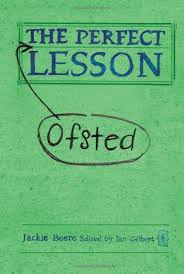Does Michael Wilshaw believe what he says?
There were many praiseworthy things said by Wilshaw in his speech on Friday, but his stance on Ofsted inspectors who hold progressive prejudices did not add up. Wilshaw appeared to deny the existence of such inspectors whilst simultaneously pledging—in no uncertain words—to root them out.
Wilshaw said that the challenge, emanating from Civitas but also from numerous teacher bloggers, that many Ofsted inspectors have a preference for ‘progressive child-centred learning’ was ‘unwarranted and over the top’. He continued that such an accusation, ‘in other words’ means Ofsted is full of ‘trendy, hippie-style inspectors’. It is easy to discredit a criticism through ridiculing it: obviously none of Ofsted’s challengers are angry at inspectors in flared trousers and tie-died T Shirts encouraging teachers to sing Kumbaya and read Beat poetry.
What they are angry about is inspection reports repeatedly praising active learning, independent learning, learning in groups and pupils taking responsibility for their own learning, whilst criticising teacher-led lessons, supposedly ‘passive’ pupils and lessons focused on knowledge accumulation. Whilst such language is, encouragingly, missing from Ofsted reports for schools inspected after the changes to the subsidiary guidance on 23 December, it did suffuse the reports from before that date.
More concerning, Wilshaw implied that progressive, child-centred education was a passing fad of the ‘dark days’ of the 70s and 80s. He states that ‘It was the coming of Ofsted and other accountability measures in the 90s that started to change things for the better.’ Such a chronological narrative concerning the changing fashions in teaching methods is plainly inaccurate. During the 1990s, Chris Woodhead was Her Majesty’s Chief Inspector. In Class War (2002), Woodhead’s account of his time in charge of Ofsted, he wrote:
[Inspectors] drag the baggage of their beliefs about the nature of education, how teachers should teach and schools be managed, what it is reasonable to expect inner-city kids to achieve, into the classrooms they inspect… If their baggage was the flotsam and jetsam of progressive education, then, in my judgement as Chief Inspector, we had a problem.
Elsewhere in the book, Woodhead wrote ‘my single biggest doubt about Ofsted stems from the fact that some inspectors are unwilling or unable to jettison their progressive educational views’. Intriguingly, Woodhead never drew attention to this problem whilst he was HMCI as he was concerned it would have opened him up to accusations in the press that he could not control his own inspectors.
That was in 2002. During the years that followed, initiatives promoting progressive education rained down on schools, masquerading under new mantles such as learning styles, multiple intelligences, active learning, independent learning, differentiation and personalisation. It was during this period that Ofsted gained its most feared reputation as the child-centred inquisition. Just look at the publication, How to Teach the Perfect Ofsted Lesson, published in 2010. It ridiculed Woodhead as the ‘witch-finder general’, and stated that Ofsted was now looking for:
…a focus on learning, the development of thinking skills, opportunities for independent learning, a variety of strategies that take into account different elements of the individual learner’s preferences, strengths and weaknesses, the use of positive emotions, great relationships, clear goals, metacognition, creativity and the willingness to take a risk or two.
One suspects Wilshaw, at heart, is all too aware of these developments. In his speech on Friday, he even recounted his experiences as head of a new academy in 2004, when educrats would arrive from the DfES clutching clipboards and looking for ‘blue-sky thinking’. Wilshaw suspected they hoped he would declare of his school,
…we’re introducing modular cross-curricular themes suffused through the timetable; compressed for two days a week to allow the citizenship faculty to meet with the science and design faculty to discuss obesity and healthy eating.
Wilshaw must know of the progressive prejudices of those who work for his inspectorate. Why else would he have felt the need to write a letter to his inspectors on 24th January 2014 stating, ‘please, please, please think carefully before criticising a lesson because it doesn’t conform to a particular view of how children should be taught’, having singled out an inspection report which advocated ‘independent learning’ as an example?
This post is not an attack on Wilshaw. Through his magnificent work as Mossbourne Academy’s first head he established himself as the most inspiring force for change currently working in British education. In addition, there is much that Ofsted does well, such as encouraging failing schools to take seriously the problem of poor pupil behaviour and the need for regular assessment. However, in the specific but vital area of observing classroom practice, there remains a great deal that needs to change. It would be helpful if Wilshaw did not deny the existence of this problem which in the next breath he promises to solve.



Reblogged this on The Echo Chamber.
[…] Does Michael Wilshaw believe what he says? […]
The 5th Echo Chamber Blogpost of the Week (as featured in the Chalk Talk Podcast) | The Echo Chamber said this on March 30, 2014 at 8:01 pm |
[…] nature of the organisation he is attempting to lead. That said, I think Rob Peal has it about right here in pointing out that he seemed to deny the very problems which elsewhere he had promised to […]
An OFSTED Round Up | Scenes From The Battleground said this on April 2, 2014 at 8:20 pm |